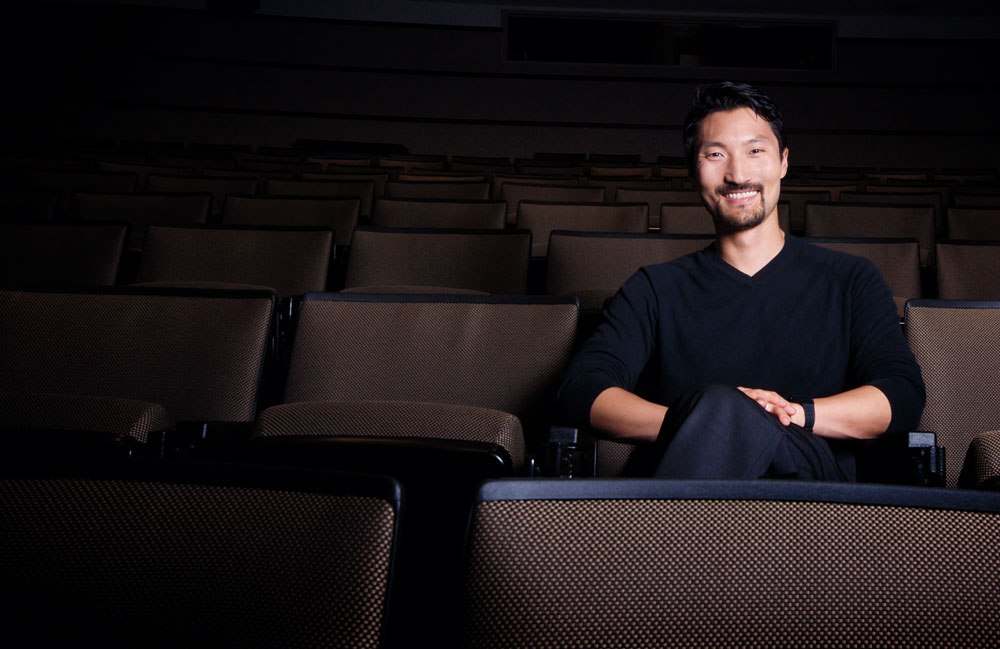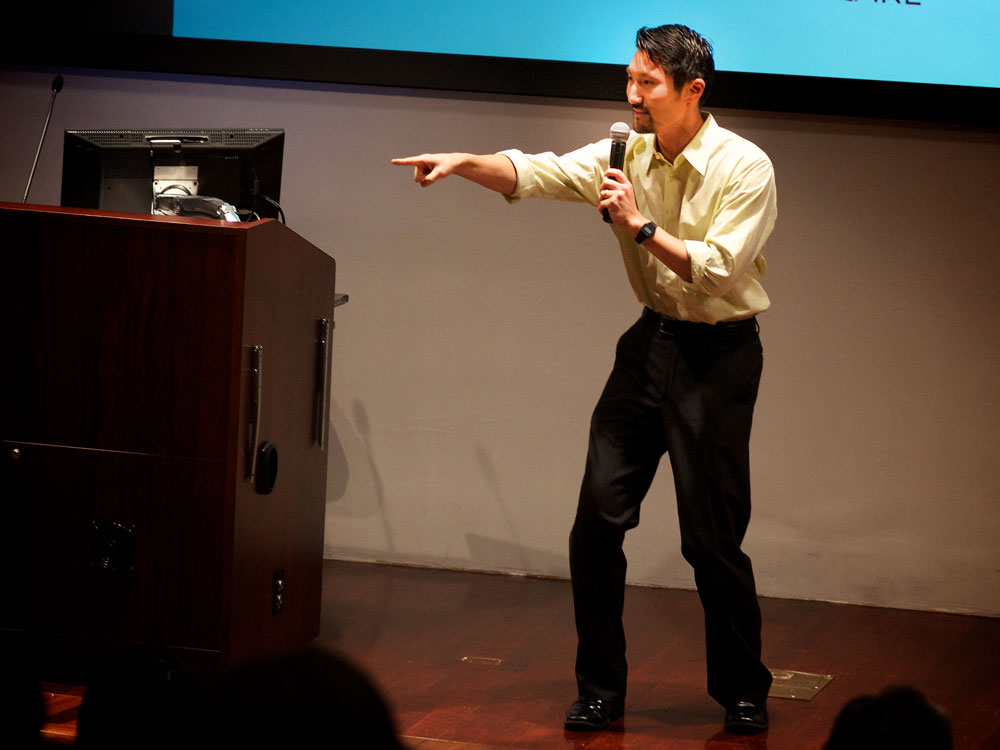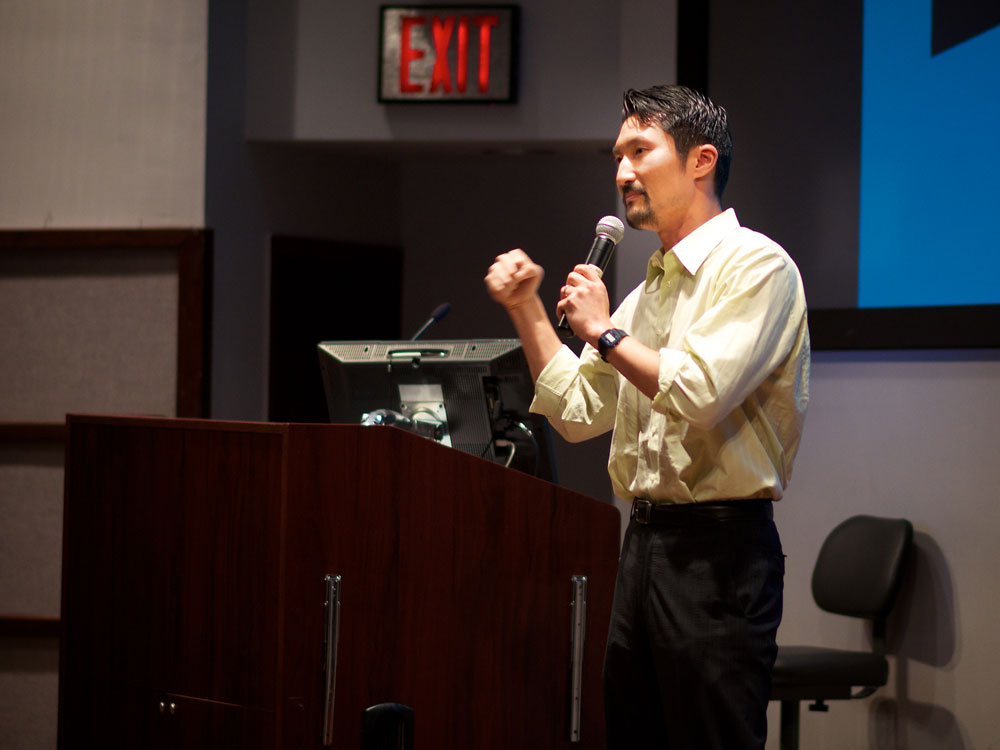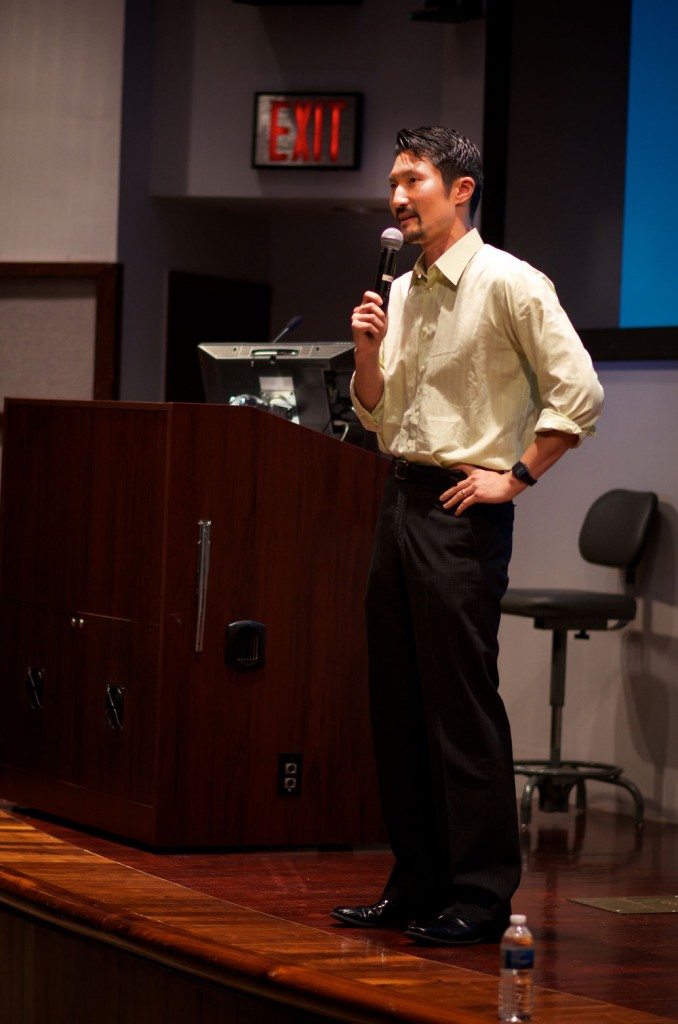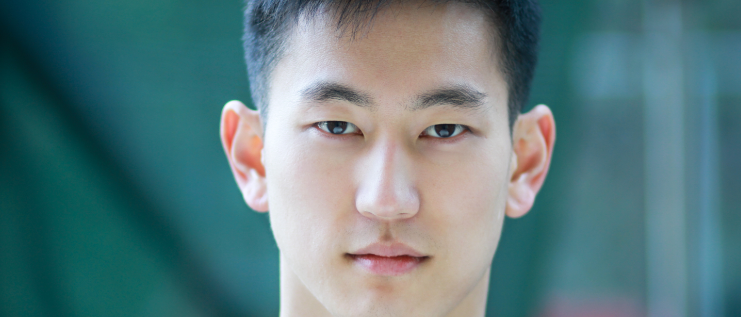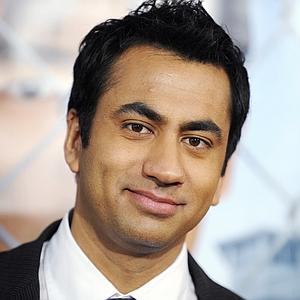Yul Kwon Reveals: Asian America’s renaissance man on facing fears, career and leadership
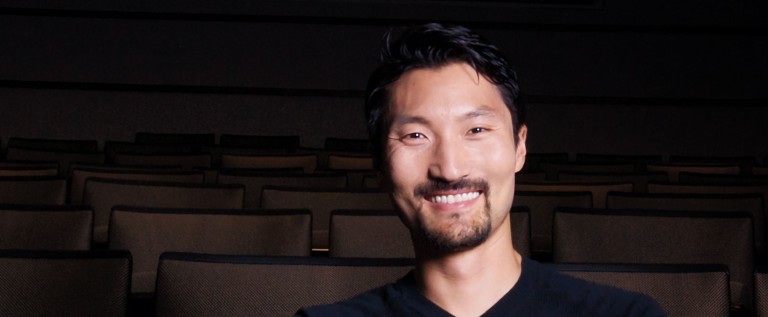
Today, I’m going to raise my hand in class,” the young Yul said to himself.
Renaissance man Yul Kwon recalled his turning point during a miserable adolescence when he dealt with psychological disorders, bullying, and depression. Looking at his accomplishments today, it is hard to imagine that the Survivor winner was not born to be in front of a camera or behind a podium. “Leadership is very much a learned skill,” Kwon said. In fact, Kwon’s successes in law, government, business and media are all fruits of many painstaking years of overcoming fears and constantly improving himself.
Sitting down with ALIST, the 37-year-old conveys an unwavering sense of who he is, exuding confidence you would expect for one of the ‘sexiest men alive’ according to People. At the same time, Kwon exhibits a refreshing authenticity, disarming humility and deep intellect as he talks about challenges and responsibilities in his life and in the world.
A True Survivor
The breakout moment came for Kwon when he won the hit reality show Survivor in 2006, after already filing his résumé with names such as Google, McKinsey and the U.S. Senate.
In the controversial Cook Islands season featuring tribes divided by ethnicity, Kwon garnered legions of fans through his sportsmanship, articulate negotiation skills and collaborative strategies. As the first Asian American champion, Kwon demonstrated emotional intelligence and leadership that shattered stereotypes of Asian men, and exemplified the possibilities of transcending racial barriers.
Kwon’s modus operandi of taking risks, advancing a cause and constantly challenging himself has become not only a vindication for the years of hard work, but also a metaphor for his career leading up to and after Survivor.
“For much of my childhood, I felt like I was a freak,” Kwon recalls, describing his constant fear of getting beat up, sweating uncontrollably in front of people, and self-deprecating isolation and silence after developing a lisp, OCD and paruresis (“shy bladder syndrome”). “I spent most of my life thinking that I was the only one who felt this way.” Kwon remembers mourning his brother’s close friend who committed suicide, which became a wake-up call. He questioned how a person can cut his life so short. “Actually, I think I know,” Kwon thought then. “He probably felt like how I was feeling. If I didn’t change myself, I will live a life of loneliness or just give up hope.”
“For much of my childhood, I felt like I was a freak.”
In a process of incremental but steady change, Kwon took small and tangible steps, such as answering a question in class and greeting a stranger every day. “A lot of times people don’t try because it leads to failure. What matters is the process.” Kwon also sought community and support structures, taking on drama lessons and team sports. “You have to find support structures, and to put yourself in an environment where other people can help you.” Eventually, Kwon entered a virtuous cycle — success breeding confidence and in turn breeding further success.
“When I was younger, it never occurred to me that I’ll do something like TV; I just wanted to be normal.” Kwon admits he is still an introvert at heart, and gets nervous when he is in front of crowds. “What I‘ve learned is that you can’t let it beat you, you have to confront your anxieties and your fears.”
In addition to challenges of self-worth, there were pressures from family and society. Kwon’s parents immigrated to Queens, New York, where Kwon was born, with big dreams but little assets. Growing up in Northern California, Kwon felt an unrelenting need for his parents’ approval. “My parents made so many sacrifices to give me opportunity that they didn’t have, I feel like I owe them this debt.”
As Kwon went on to achieve what appeared to be the Asian American dream, graduating from Stanford University and Yale Law School, he wrestled with reconciling happiness with success.
When Kwon decided to go on a reality show, it caused a rift with his parents. “What the hell are you thinking? Throwing away your career like that?” Kwon remembered his dad shouting. Going against his parents’ wishes, Kwon’s performance ultimately erased their doubts, and even brought them closer together.
“My dad came up to me, and said something I’ve never heard him say before: ‘Yul, I’m sorry.’” Through the show, Kwon’s parents witnessed the man of character he had become, and were genuinely proud. “I think that’s true for most Asian parents — a lot of them are skeptical. But if you’re successful and happy at what you do, they’d ultimately come around and accept it.” Kwon then leveraged his fame for a variety of causes, including bone marrow drives, motivated by losing his best friend in college to leukemia.
Trailblazing on TV: Revealing America
Kwon now speaks regularly to young people, candidly and openly sharing his struggles with parental expectations and social phobias and his path to success. He even published a biography in Korean, hoping to reach South Korean youth, a group with one of the highest rates of suicide in the world. “My parents could care less about [my celebrity],” Kwon says. “But as soon as they see a tiny blurb in a Korean newspaper, they go crazy and send it to all their friends.”
Kwon is once again making headlines, being the first Asian American male host of an epic-scale documentary series about the United States. The PBS show, America Revealed, celebrates the massive networks and infrastructure that we take for granted. It taps into Kwon’s expertise in technology, his lifelong fascination for systems, and his vision of using media to spur important national conversations.
Using state-of-the-art mapping visualizations and stunning aerial photography, the series explains the marvelous inner-workings of systems such as food production, manufacturing, transportation and energy that power our modern lifestyle. Kwon, who has a fear of heights, is often seen narrating atop tall structures and in open-door helicopters. There are even scenes of him sky-diving and rappelling down a giant wind turbine. “I spend half of the show scared to death. When you see me screaming, I’m not acting.”
Leaving an influential post as the Deputy Chief of the Consumer and Governmental Affairs Bureau for the Federal Communications Commission (FCC), Kwon thought the PBS opportunity was too good to pass up. While he was at the FCC, Kwon was instrumental in pushing for broadband internet access to underserved communities, one of the aspects of infrastructure development that he believes is critical for America’s future.
“I spend half of the show scared to death. When you see me screaming, I’m not acting.”
“One of the reasons we became the most economically and militarily powerful country in the world is because we built these large systems that became a platform for economic growth, but a lot of them are now facing stress; they are overcapacity.” Kwon also expresses his appreciation for public television, which was the primary ways he learned English as a child. “My parents couldn’t afford to send us to day care…shows such as Sesame Street and NOVA helped expand the world for me.”
Now as a grown-up geek, Kwon is revisiting his sense of wonder for the intricate details and the big picture. “I didn’t realize how enormously complex these systems are that we rely on every single day — all the different things that had to happen in order for the light to turn on, and the pizza to be delivered when you order it.” In the energy episode, Kwon described the massive 2003 Northeast blackout that was caused by one overgrown tree in Ohio. “It’s a minor miracle every time these systems work. But if something goes wrong, the entire system can go down.”
Kwon, who became a father during the show’s production, believes the ability for the next generation to enjoy the same living standards and compete in the global economy hinges upon how we invest in these systems. “We’re facing some daunting [infrastructure] challenges, and people are being misinformed.”
The show also chronicles the innovators and everyday unsung heroes who keep our systems working, and the surprising aspects that counter the pessimistic outlook the media often portrays, such as America being the leading high-value inventor and manufacturer in the world that attracts the most creative people and investment dollars. Kwon hopes the show will be a platform for the public to engage in civil and critical dialog about important topics. “Media is the most powerful way to take substantive content and wrap it in an entertaining veneer that causes people to pay attention.”
The food episode spawned the most impassioned debate, which shows the incredible amount of water and energy used for our agriculture system and the unprecedented scale in food production that makes enough food to feed all seven billion mouths on the planet. It also covers the emerging local and organic food movement, such as urban farmers in Detroit that are repurposing abandoned lots into oases of nutritious vegetables for residents who often lack access to healthy food choices. Some viewers point to the absent critique on the inequitable distribution and dependency to chemicals, highly-processed foods and genetically-modified crops that are creating problems for nature and human health. “[The producers] are not trying to teach people what to think, it’s really about how these systems work.” Still, Kwon believes solutions lies somewhere in the middle. “Can we harness the system that uses scale to produce food cheaply — in service of coming up with foods that are actually healthy, and free of pesticides? I’m optimistic that we will get there.”
Asked which one of the systems he would improve first, Kwon laments on the need to repair our political system. “From all the things I have seen, it’s the most dysfunctional right now.” Kwon goes on to describe the failure to compromise in the debt ceiling crisis, among others, and the focus of politicians on the next election cycle instead of the next generation.
“The coverage of Asia in America is often US-centric lens — it can be biased or filtered.”
On the other hand, Kwon believes in the democracy that brings people together to solve problems, as the nation has done in the past. “These challenges that our country faces — whether it’s food, energy, transportation, et cetera — are solvable.” Kwon remains bullish as he sees the market responding to consumers’ changing demands, whether that’s for healthier foods, sustainable energy choices, or more efficient machines. In the same way, Kwon hopes citizens will stay engaged, and demand sound policies and investments from their elected officials.
On increasing civic influence and political power, Kwon urges Asian Americans to not only do things well functionally, but to take initiative and step up in leadership in their respective fields. “In order to fully honor and respect the contributions and sacrifices [our parents] made, it’s imperative for us to take advantage of these opportunities our parents did not have,” he says.
One of the ways the current generation is departing from the previous is the increasing solidarity among the diverse ethnic and linguistic groups. “What’s encouraging to me is the increased interest in politics and media in the last few years — a lot of [Asian Americans] coming together…we now need to work together with other groups.”
A Leadership Call to Asian Americans
Throughout his diverse career, Kwon recognizes a common pattern. “Asian Americans are somewhat hesitant in terms of aggressively networking; putting themselves out there to be considered for leadership positions.”
In his report for CNN on the “bamboo ceiling,” which describes the lack of Asian Americans in executive-level management despite being the most educated and affluent demographic groups, Kwon recalled asking a partner in his law firm why there are so few Asian American partners. The firm discovered, alongside another study by Harvard Business School students, that Asian Americans have not reached the upper echelons in the American workplace based on internal and external factors.
First, the studies link the phenomenon to the experience that Asian Americans are socialized within their communities to show deference to authority and to devalue self-promotion. Second, the persistent stereotypes of Asian Americans being smart but missing charisma or social skills perpetuate the view that Asian Americans do not aspire to be leaders.
Lastly, the most crucial ingredient is mentorship, which Kwon has experienced throughout his career.
Among the Asian American professionals surveyed, many do not have other seasoned colleagues who can become internal champions for them within the organization to get promoted. Kwon also notes that Asian Americans often do not integrate themselves with the broader professional networks. Without mentors and networks, they start to feel disconnected, unable to be promoted and eventually leave.
Kwon has had crucial mentors throughout his career, both Asian and non-Asian. “As long as you have someone who can help guide you and challenge you…I also try to be thoughtful in mentoring those who are younger than me.”
As Kwon inspires other Asian Americans to shatter the perpetual foreigner myth and rise up as leaders, he continues to break new ground. In his latest project, Kwon acts as bridge between America and Asia. He is currently the anchor for LinkAsia, which presents current events from Asian points of view. It aggregates material from mainstream and social media outlets in Asia, presenting a unique and fresh way in understanding world affairs.
“The coverage of Asia in America is often US-centric lens — it can be biased or filtered.” Indeed, some of the fears and misunderstandings of Asia have profound effects on perceptions of Americans of Asian decent. Asia’s development feats, from manufacturing to transportation, are directly fueling the anxiety of what many observe as an American decline in the global community. “What you see is that developing countries are able to leapfrog in technology…cherry-picking best designs and technology, and build from scratch,” Kwon says, citing the impressive high-speed rail and broadband infrastructure in China, Japan and South Korea.
Just as Asian American success is not one-dimensional, huge deficits still exist in the economically resurgent Asia Pacific region. “Some of [the Asian countries] are far behind in areas such as human rights, environmental pollution, transparency, a lot of which are being sacrificed in pursuit of growth.” Kwon also points to the massive income and wealth disparities that exist in Asian societies, a phenomenon that is also plaguing America and impedes sustainable growth. “It’s incumbent upon people in America to really understand what’s going on in Asia, rather than living with a complacent point of view — feeling we’re the best in the world,” he adds.
By opening global channels of understanding, blazing the trail for Asian men in the media, and overcoming the stigma of mental illness, Yul Kwon continues to reveal what makes any nation or society remarkable: thoughtful individuals like him who are willing to self-invent and take risks for the betterment of something far greater than the self.
“If I do these things well, maybe it’ll create more opportunities for others.”

